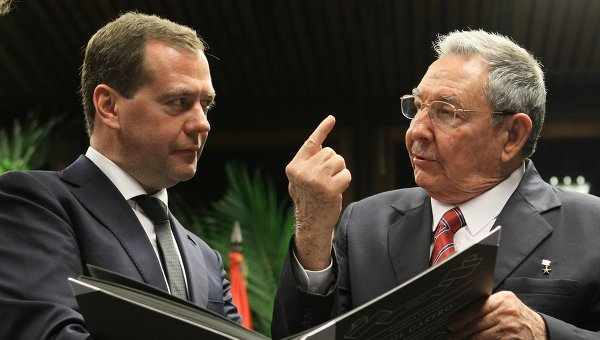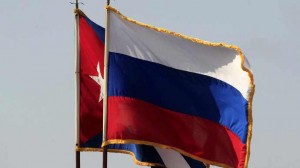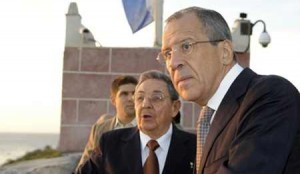
Russia set to waive Cuba’s $35.2-billion debt
 The Kremlin on Thursday (July 3) sent to the Russian parliament a bill to pardon Cuba’s 35.2-billion-dollar debt to the Russian Federation during the years that Russia was part of the Soviet Union.
The Kremlin on Thursday (July 3) sent to the Russian parliament a bill to pardon Cuba’s 35.2-billion-dollar debt to the Russian Federation during the years that Russia was part of the Soviet Union.
The bill sent to the State Duma’s Committee on Budget and Taxes is titled “On the ratification of the agreement between the Government of the Russian Federation and the Government of the Republic of Cuba to settle the debt of the Republic of Cuba to the Russian Federation for loans granted by the former Soviet Union.”
The committee is expected to review the proposal today (July 3) and send it to the full Duma tomorrow with a recommendation to accept it. The Duma is the lower house of Parliament.
According to an agreement signed in Moscow on Oct. 25, 2013, the total amount owed by Cuba to the Russian Federation is about $35.2 billion. Ninety percent of that sum — about $32 billion — will be written off and the remaining 10 percent will be repaid by Cuba over 10 years, in 20 equal semi-annual installments.
The first payment will be made on Oct. 25, 2014; the final one, on April 25, 2024.

However, Russia plans to take those payments and reinvest them in Cuba, as Foreign Minister Sergei Lavrov announced during his visit to Havana on April 29. As reported by Progreso Weekly, Lavrov “explained that one tenth of that debt will be forgiven and invested by Russia into projects on the island.”
To handle that process, a special account has been created in the National Bank of Cuba by Russia’s Vneshekonombank, or Bank of Foreign Economic Activity.
The October 2013 agreement was signed at the recommendation of Prime Minister Dmitry Medvedev (shown above with President Raúl Castro in 2013 photo) , who visited the island and met with Raúl Castro in February of that year.
The disclosure of the 2013 agreement was first made by the news agency Reuters, which pointed out that “Cuba defaulted on its debt in the late 1980s but has been trying to restructure the old debts to improve its international credibility.”
After the Soviet Union folded in 1991, the Russian Federation became the legal holder of Cuba’s debt. The Cuban government refused to repay the loans because they were made in a currency that no longer existed (the Soviet ruble) by a country that no longer existed.
Russia has maintained that Cuba owed the money since Soviet times, while Cuba complained that the Russian Federation should have compensated Cuba for breaking their bilateral economic relationship in the 1990s. That breakup led to the so-called “Special Period” in Cuba, a time of great economic duress.
Suggested reading: Russian senators will visit Cuba this week

